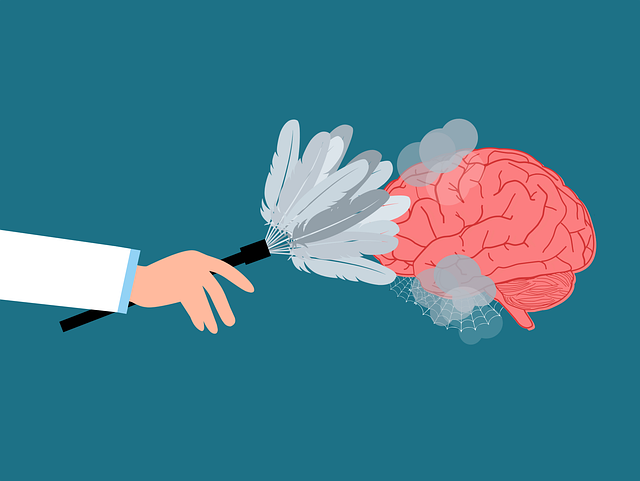Identifying risk factors like genetic predisposition, family history, mental health issues, peer pressure, and environmental trauma is crucial in preventing substance abuse among young people. Early intervention services including individual counseling, group therapy, and family support programs break the cycle by targeting at-risk individuals before severe dependencies develop. Public awareness campaigns and education promote alternative burnout prevention strategies, empowering young people with mental fortitude to resist peer pressure. Proactive measures, combined with access to quality therapy for young children, adolescents, and teens, significantly reduce substance abuse likelihood among vulnerable youth.
Substance abuse among youth remains a pressing concern, with far-reaching consequences. This article explores comprehensive risk reduction strategies to tackle this challenge head-on. We delve into identifying risk factors and early intervention techniques for young individuals, highlighting the importance of proactive measures.
Additionally, we examine therapeutic approaches tailored for therapy for young children, adolescents, and teens, offering effective treatments to support their recovery. Preventative measures and community support systems are also discussed, emphasizing their role in minimizing risks and fostering healthier environments.
- Identifying Risk Factors and Early Intervention for Substance Abuse in Youth
- Therapeutic Approaches: Effective Treatments for Young Children, Adolescents, and Teens
- Preventative Measures and Community Support Systems for Risk Reduction
Identifying Risk Factors and Early Intervention for Substance Abuse in Youth

Identifying risk factors is a crucial first step in preventing substance abuse among young people. Many factors can contribute to a youth’s vulnerability, including genetic predisposition, family history of addiction, mental health conditions, peer pressure, and environmental influences such as exposure to violence or trauma. Early intervention services play a vital role in breaking the cycle of substance misuse. By targeting at-risk individuals before the development of severe dependencies, therapy for young children, adolescents, and teens can prove highly effective. These interventions often include individual counseling, group therapy, and family support programs that aim to build resilience and foster healthy coping mechanisms.
Public awareness campaigns and education are essential components of a comprehensive strategy. Raising awareness about the risks of substance abuse and promoting alternative burnout prevention strategies for healthcare providers can help identify potential issues early on. Mind over matter principles can empower young people with the mental fortitude to resist peer pressure and make informed decisions regarding their well-being. Such proactive measures, combined with access to quality therapy services, can significantly reduce the likelihood of substance abuse among vulnerable youth.
Therapeutic Approaches: Effective Treatments for Young Children, Adolescents, and Teens

Early intervention is key when it comes to addressing substance abuse issues in young children, adolescents, and teens. Therapeutic approaches designed specifically for this age group can be incredibly effective in preventing long-term dependencies. One-on-one counseling sessions help individuals process underlying emotional trauma, while group therapy facilitates peer support and shared experiences, fostering a sense of community. These therapeutic methods are tailored to the unique needs of each individual, promoting open communication and building resilience against substance abuse.
For adolescents and teens struggling with addiction, specialized programs focusing on family therapy can be transformative. Engaging parents or guardians in the healing process encourages a supportive home environment, crucial for preventing relapse. Additionally, incorporating self-care practices and stress reduction methods, such as mindfulness training and exercise, empowers young people to manage triggers effectively and fosters healthy coping mechanisms, ultimately contributing to successful recovery and burnout prevention.
Preventative Measures and Community Support Systems for Risk Reduction

Preventative measures play a pivotal role in risk reduction for substance abuse, especially among vulnerable populations like young children, adolescents, and teenagers. Early intervention is key; implementing programs that foster resilience and coping skills development can significantly alter future trajectories. Schools, communities, and families can collaborate to create supportive environments that encourage open discussions about mental health and substance use, reducing the likelihood of experimentation and addiction.
Community support systems are integral to sustaining these efforts. Therapies like compassion cultivation practices have proven effective in building resilience and fostering healthier relationships. By equipping young individuals with coping skills, they gain the tools needed to navigate stress, trauma, or peer pressure without resorting to substance abuse. These preventative strategies not only mitigate risks but also empower individuals to lead fulfilling lives free from addiction’s grasp.
In addressing substance abuse among youth, a multi-faceted approach is crucial. By identifying risk factors early on and implementing effective therapeutic interventions tailored to young children, adolescents, and teens, we can significantly reduce the likelihood of abusive behaviors. Additionally, preventative measures and robust community support systems play a vital role in fostering healthy development and mitigating risks. Through these strategies, we can create a safer and more supportive environment for our younger generation, ensuring they receive the care and guidance needed to avoid substance abuse.














